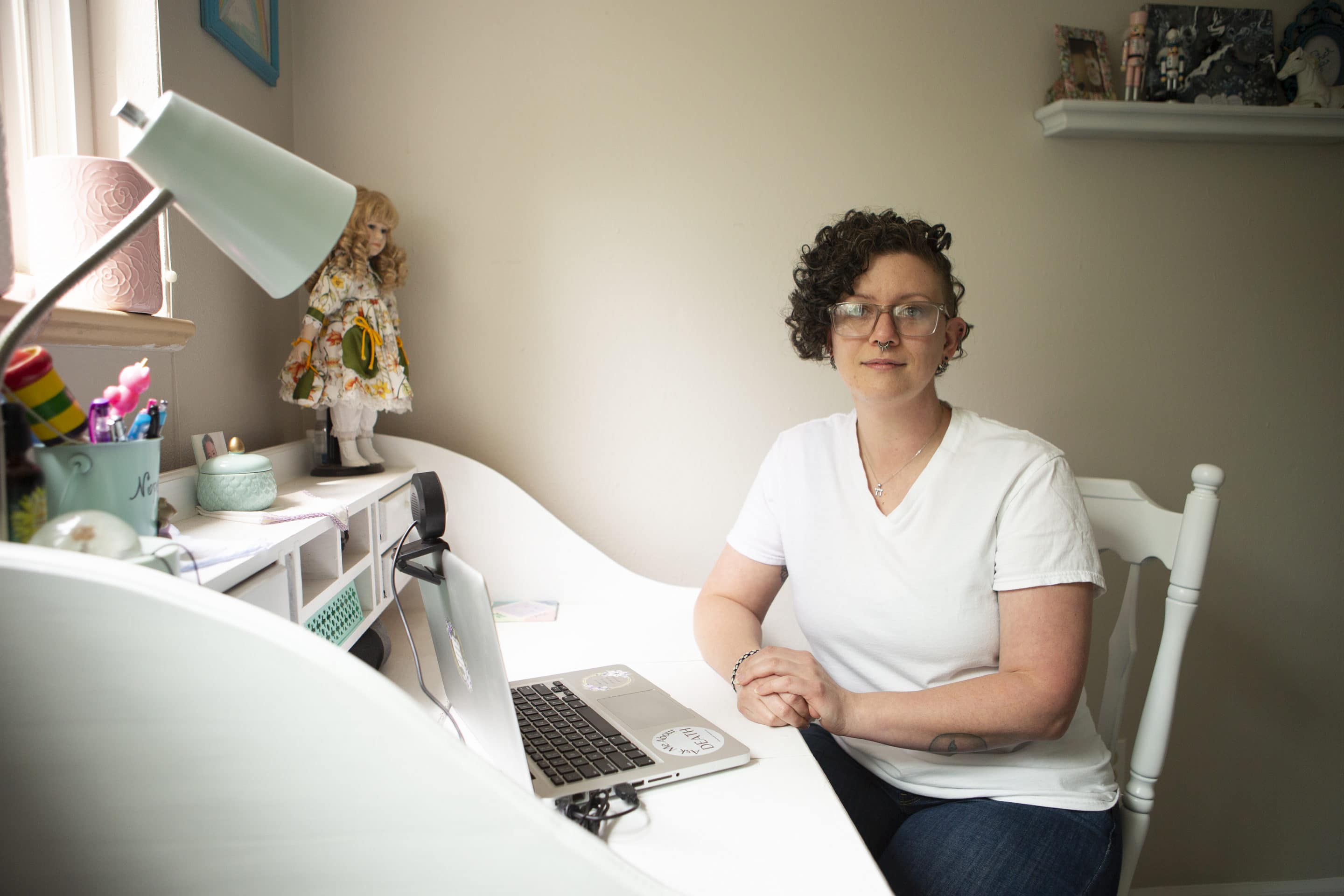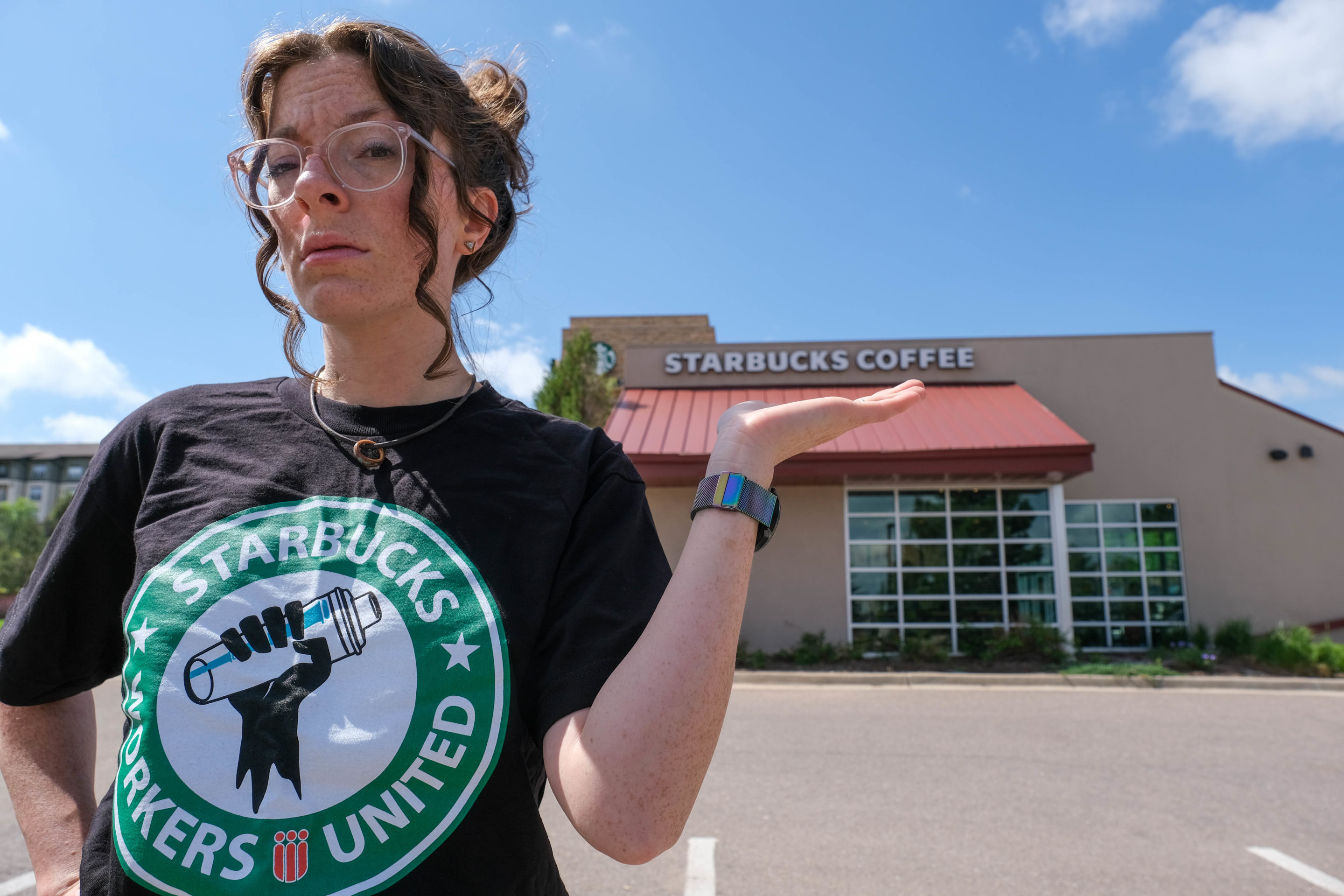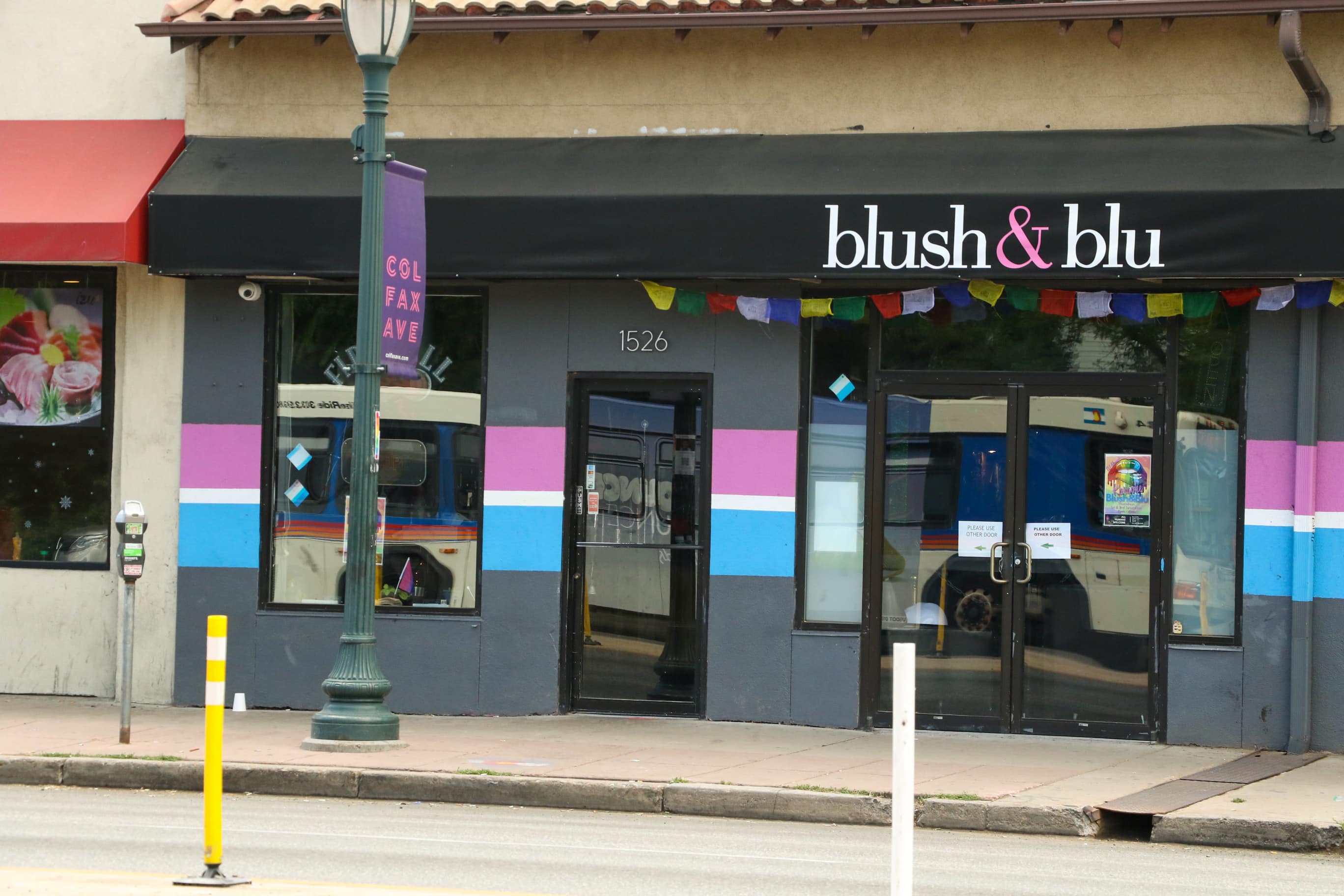//Desiree Celeste, owner of Denver Death Companion, sits in their home office in Denver where they work virtually with clients. Photo by Ali Mai | [email protected]
For many of us, death is about loss and grief, but for Desiree Celeste, death is part of their life’s calling.
“To connect with other people during such a personal time, to help them heal and self-empower, it ruins me in the best way,” Celeste said.
Celeste is a nonbinary death companion and runs a business called Denver Death Companion. Almost 10 years ago, they lost their grandmother after three years in hospice care. While Celeste credits the medical care as being incredible, their family’s emotional care was lacking.
Without an advocate for their grandmother’s happiness and end-of-life wishes, they were torn apart by grief and confusion. Their grieving was impacted by struggling to organize final plans; they fell into doing what they thought they should be doing instead of what their loved one might have wanted—or also importantly, what they needed for themselves in this time of loss.
The grief Celeste felt in this moment left them wishing their family had received more support. In their moment of despair, clarity came. Celeste felt this pull to support others in a way their family wasn’t. They started researching opportunities and, for a while, considered becoming a funeral director. It wasn’t until the fall of 2020 that they came across “death companionship.”
“I had been doing the work,” Celeste said. “Whether it was pet death or human death, I’ve stepped into different spaces to be there for people. I’m the weirdo who had death parties to help others prepare for loss. Someone finally told me I was doing death companion work.”
Death companions serve their communities as educators. They also help individuals, families and other small groups who are navigating a significant loss through their knowledge about the process of dying, death, grief and bereavement. Death companions do not provide medical or legal advice but can make referrals.
“There are people nationwide who are providing this personalized care and planning for people in their communities,” Celeste said. “Once I realized I could make this a public service, I dove right in.”
As a Death companion, Celeste coordinates bedside vigils, holds hands with people when their pets are being euthanized and talks people through guilt and grief. They explain all of the options for funerals and burial that people might not know existed. They’ve aided in building memorials not just for loved ones who have recently passed, but also for those who were lost long ago and never properly honored.
Whether it’s someone’s pet passing, they’re honoring a miscarriage, or they are looking to die with dignity, “I approach each circumstance with an equally open heart,” they said. “I don’t have all of the answers right away, but I can be their support system and we can find the answers together.”
Community care is Celeste’s primary focus. Becoming a death companion required them to expand their knowledge of the vast and diverse world of death work. From an apprenticeship with activist and Death Midwife Narinder Bazen to taking the Death Companionship Community Crash Course with the School of American Thanatology, they took every opportunity to study and along the way embraced whatever adjacent education was available to them.
During that time of study, they became aware of the abuse many trans and gender-nonconforming people experience during loss. While they didn’t want to limit themselves to one audience, as a trans member of the queer community, they felt a responsibility to create a safe space for their peers.
“Not all death workers are equipped to help queer people,” Celeste said. “We need protected spaces and a different level of education for death workers to ensure the queer community’s needs are being met.”
While Celeste enjoys all facets of their work, they find grief gatherings to be something uniquely special. Celeste credits the creation of these gatherings to a gap in grief support that needs to be filled.
Grief gatherings serve as a space to share stories, tears and connections. Whether the loss someone experienced was a day ago, a year ago or 10 years ago, all grief is welcome. They offer public gatherings specific to the queer community and private gatherings upon request.
“I always leave these gatherings wanting to shout from the rooftops how much I love what I do,” they said.
A client of Celeste’s, Kayleigh Wirges, found understanding through these gatherings. As a trans nonbinary person, they know what it’s like to be ostracized by family during a time of grief.
“My grandmother was my best friend and when it came time for her to pass, I transitioned into her end-of-life companion,” Wirges said. “I was her voice and advocated for her wishes. But my family members, who had never fully accepted me, undermined me every step of the way.”
Wirges, who is from Little Rock, Arkansas, is also a nonbinary death worker. While they are “out of the closet” as she put it, they haven’t always felt safe in the world. While losing the closest person to them, Wirges found solitude when they met Celeste.
“I can’t speak for all trans people, but for many of us, we can be completely out and still in some ways be held back by the people in our life,” Wirges said. “When I attended one of Celeste’s gatherings, it was the first time I felt truly out of the closet. Even with everyone’s grief, it was a space filled with love. Celeste created that and allowed us to be as we are.”
Today, Celeste is still working a retail job while they build their business into a full-time venture. They feel that they’ve only scratched the surface in their work, hoping to really personalize the death and grief process for their future clients.
“While a cemetery funeral that includes wearing all black works for one family, a funeral at home that has someone’s favorite aunt sitting up at the dinner table with a drink in her hand instead of laying in a casket works too,” Celeste said. “Life is personal. Relationships are personal. Self-care is personal. So why can’t death and grief look personal, too?”
Enjoyed this story? Help us keep the lights on! Supporting local press ensures the stories you want to read keep coming, become a member for free today! Click here.





0 Comments